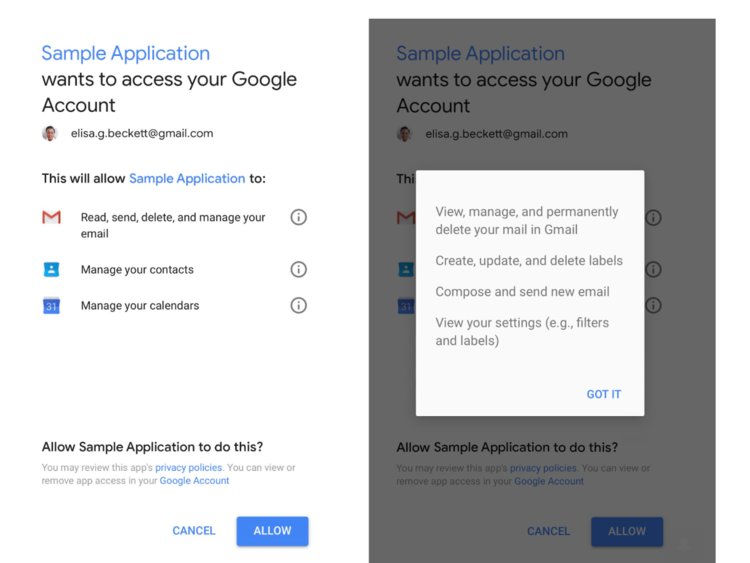Across the continent, migrants are being confronted by a booming mobile forensics industry that specialises in extracting a smartphone’s messages, location history, and even WhatsApp data. That information can potentially be turned against the phone owners themselves.
In 2017 both Germany and Denmark expanded laws that enabled immigration officials to extract data from asylum seekers’ phones. Similar legislation has been proposed in Belgium and Austria, while the UK and Norway have been searching asylum seekers’ devices for years.
Following right-wing gains across the EU, beleaguered governments are scrambling to bring immigration numbers down. Tackling fraudulent asylum applications seems like an easy way to do that. As European leaders met in Brussels last week to thrash out a new, tougher framework to manage migration —which nevertheless seems insufficient to placate Angela Merkel’s critics in Germany— immigration agencies across Europe are showing new enthusiasm for laws and software that enable phone data to be used in deportation cases.
Admittedly, some refugees do lie on their asylum applications. Omar – not his real name – certainly did. He travelled to Germany via Greece. Even for Syrians like him there were few legal alternatives into the EU. But his route meant he could face deportation under the EU’s Dublin regulation, which dictates that asylum seekers must claim refugee status in the first EU country they arrive in. For Omar, that would mean settling in Greece – hardly an attractive destination considering its high unemployment and stretched social services.
Last year, more than 7,000 people were deported from Germany according to the Dublin regulation. If Omar’s phone were searched, he could have become one of them, as his location history would have revealed his route through Europe, including his arrival in Greece.
But before his asylum interview, he met Lena – also not her real name. A refugee advocate and businesswoman, Lena had read about Germany’s new surveillance laws. She encouraged Omar to throw his phone away and tell immigration officials it had been stolen in the refugee camp where he was staying. “This camp was well-known for crime,” says Lena, “so the story seemed believable.” His application is still pending.
Omar is not the only asylum seeker to hide phone data from state officials. When sociology professor Marie Gillespie researched phone use among migrants travelling to Europe in 2016, she encountered widespread fear of mobile phone surveillance. “Mobile phones were facilitators and enablers of their journeys, but they also posed a threat,” she says. In response, she saw migrants who kept up to 13 different SIM cards, hiding them in different parts of their bodies as they travelled.
[…]
Denmark is taking this a step further, by asking migrants for their Facebook passwords. Refugee groups note how the platform is being used more and more to verify an asylum seeker’s identity.
[…]
The Danish immigration agency confirmed they do ask asylum applicants to see their Facebook profiles. While it is not standard procedure, it can be used if a caseworker feels they need more information. If the applicant refused their consent, they would tell them they are obliged under Danish law. Right now, they only use Facebook – not Instagram or other social platforms.
[…]
“In my view, it’s a violation of ethics on privacy to ask for a password to Facebook or open somebody’s mobile phone,” says Michala Clante Bendixen of Denmark’s Refugees Welcome movement. “For an asylum seeker, this is often the only piece of personal and private space he or she has left.”
Information sourced from phones and social media offers an alternative reality that can compete with an asylum seeker’s own testimony. “They’re holding the phone to be a stronger testament to their history than what the person is ready to disclose,” says Gus Hosein, executive director of Privacy International. “That’s unprecedented.”
Privacy campaigners note how digital information might not reflect a person’s character accurately. “Because there is so much data on a person’s phone, you can make quite sweeping judgements that might not necessarily be true,” says Christopher Weatherhead, technologist at Privacy International.
[…]
Privacy International has investigated the UK police’s ability to search phones, indicating that immigration officials could possess similar powers. “What surprised us was the level of detail of these phone searches. Police could access information even you don’t have access to, such as deleted messages,” Weatherhead says.
His team found that British police are aided by Israeli mobile forensic company Cellebrite. Using their software, officials can access search history, including deleted browsing history. It can also extract WhatsApp messages from some Android phones.




